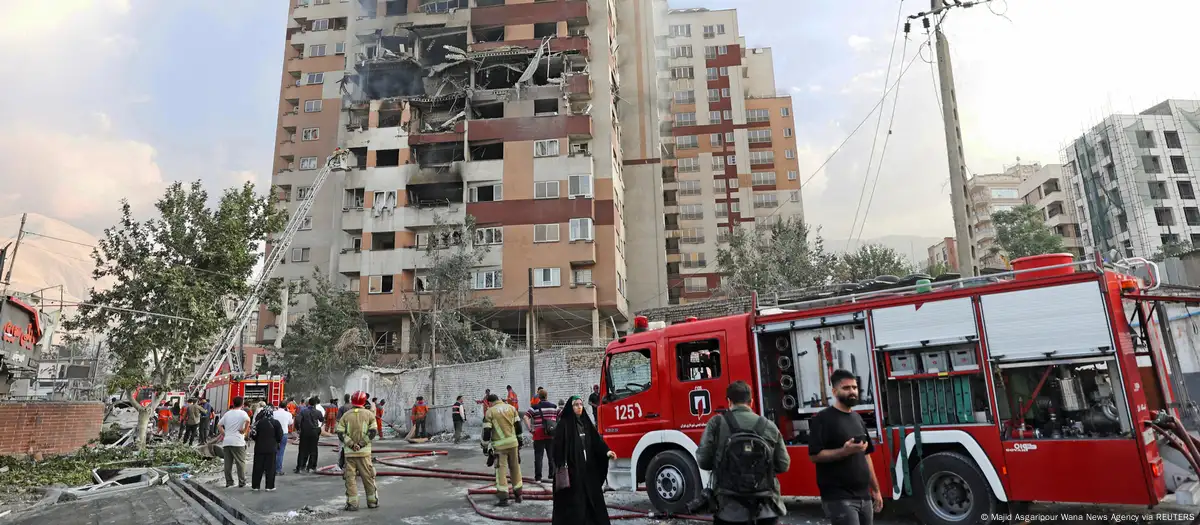
Great Israeli offensive to Iranian targets has the potential to sabotage years of efforts for nuclear agreement, led by the US. Consequences may involve the entire region.
Calling the Middle East “Gunpowder Barrel” is to minimize the situation. And in the midst of this highly explosive region, Israeli Prime Minister Benjamin Netanyahu has just launched a grenade on Friday (13/06): a massive offensive to more than 100 targets in Iran, justified as “preventive attack” against the possible development of nuclear weapons. Netanyahu has announced that the investers, including residential areas of the Tehran capital, should continue for several days.
The effects on the region and further are unpredictable, but some consequences are already announced: Iran suspended negotiations about its nuclear program, which began by the United States government by Oman mediation.
The Israeli offensive occurred two days before the next round of dialogue. US President Donald Trump had expressly urged Tel Aviv not to torpedo the negotiations. And yet just before the missiles fell, he had posted that he trusted the continuation of the conversations.
One of the deaths as a result of the attacks shows, in particular, Netanyahu’s neglect for nuclear negotiations: the victim was there Shamchani, expressly designated by the Iranian religious leader Ali Khamenei to head the committee in charge of the dialogues with the Americans.
One of the open issues is if in its eventual acts of retaliation Iran will also aim at US targets. The country is considered the most important military ally in Israel, whose support is what makes it possible to offensive of this order of greatness.
In the past, Tehran has already threatened to retaliate against US military bases in the Middle East. In turn, Washington days began evacuation of the non -necessary personnel in the region, and the family members of their military. The potential targets are many: between Egypt and the United Arab Emirates there are eight permanent American bases and several other temporary, with an estimated total of 50,000 parked soldiers.
Although Iranians have no interest in a US -armed confrontation, eventual abstention from Tehran will depend on whether – and with what degree of credibility – the White House will distance itself from Israeli attacks. On platform X, Secretary of State Marco Rubio has already assured that his country did not participate at an absolute offensive, complementing with the warning that Iran “should not aim at American interests or personal.”
Paddling perspectives for peace in the Middle East
In the Middle East, in general, nervousness is great. Countries in the region have severely condemned the Israeli offensive, even Saudi Arabia, until a few declared enemy of Iran.
The intended approach between Israel and the Arab world, which began during Trump’s term in the form of Abraham’s agreements, should be frozen. But the conduct of Israeli war in the Gaza Strip had already taken care of the diplomatic climate seriously.
In turn, only two years ago Tehran and Riyadh have become approached under Chinese mediation after years of radical hostility. Since then, bilateral relations have intensified, there were even plans for military cooperation and joint maneuvers. The latest approach signal was in April, when Saudi Defense Minister Khalid Bin Salman – Brother of Crown Prince Mohammed Bin Salman – traveled to the Iranian capital, where he also met leader Khamenei.
Like the other Arab states of the region, Saudi Arabia does not want to be implicated in the Israeli-Roranda conflict, much less with the US being involved. Given the superiority of its opponent, Iran may appeal to asymmetrical war tactics, for example obstructing oil extraction and transportation.
In 2019, attacks with drones by Houthis Iemenites temporarily interrupted the transport of Saudi oil, and in the following years of oil installations in the country were also the target of Yemen offensive. Thus, it is no surprise that the Israeli offensive have generated a strong discharge of oil prices.
Questionable is whether with these attacks Israel will reach its officially stated goal: to prevent the development of an Iranian atomic bomb. At the moment, most experts doubt it is possible to destroy the country’s nuclear program by military means. On the other hand, current bombings will be able to motivate the Iran, now, betting on nuclear weaponry. This would possibly result in an arms race in the Middle East – which is not in anyone’s interest.
Originally published by DW on 06/13/2025
Por Matthias von Hein
Source: https://www.ocafezinho.com/2025/06/13/ataque-de-israel-ao-ira-piora-instabilidade-no-oriente-medio/

